
Watching the Universe Expand with Neil Fallon
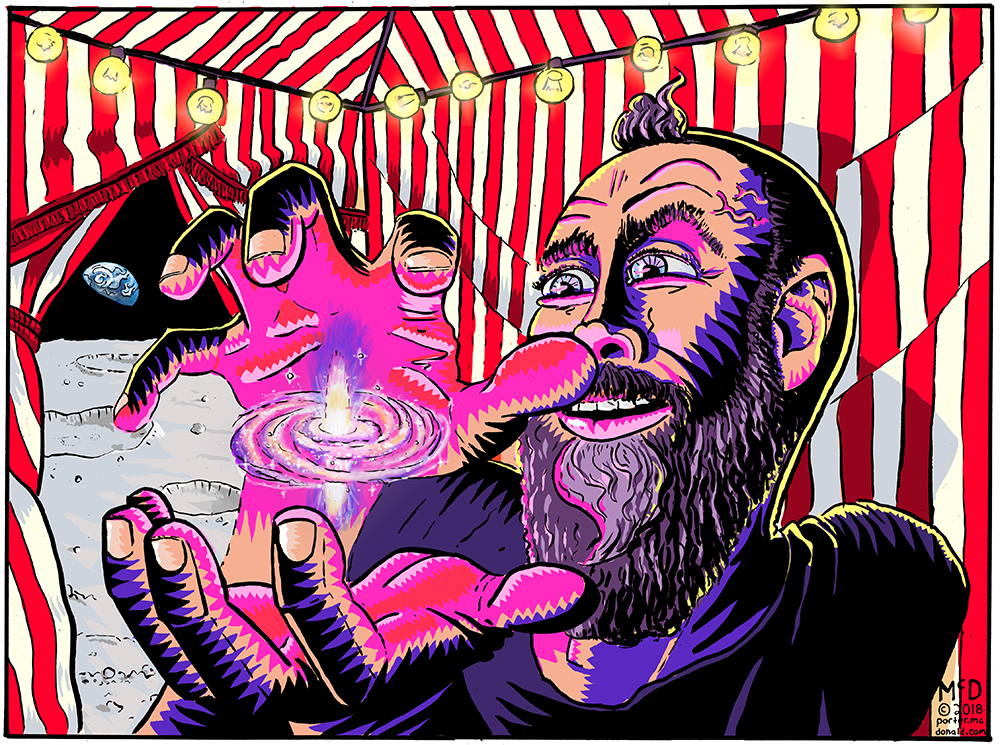
Words by Jason Davis, Art by Porter McDonald, Photos by Jason Davis and Porter McDonald
It must have been about 18 years ago during a party, or while camping (really, what was camping back then, except partying in the woods?) when a friend told me, "You should listen to Clutch."
I was raised on classic rock, introduced to Metallica in high school, and consumed in college an embarrassing amount of nu-metal through file sharing services like Napster and Kazaa. My music choices reflected my personality at the time: angry, dramatic, and morose—sometimes all three at once. I took my friend's advice and downloaded a couple of Clutch songs. What I heard wasn't exactly metal, but not exactly anything else, either. It was hard rock with fuzzy bass beats and bluesy riffs. The lead singer, Neil Fallon, had a magnetic earnestness I had never encountered before. Clutch quickly became my favorite band. They still are.
Clutch is so much more than "Spacegrass," but it's good listening material for this article.
One of the first songs I remember hearing was "Spacegrass," a trippy ballad about a 1973 Dodge Dart cruising around the solar system. The lyrics reveal a creative genius at work with more than an amateur-level understanding of space science. In his signature tall-tale style, Fallon covers astronomy ("it'll be eternity 'till we make it to M83"), cosmology ("lay low, watch the universe expand"), and relativity ("watch light bend in the blower").
Spacegrass is hardly the only example of space and astronomy references showing up in Clutch songs. Fallon name-drops Yuri Gagarin and "the Vodka-spinning Mir" in "Land of Pleasant Living," and the band's new album features "In Walks Barbarella," a reference to the campy 1968 sci-fi movie starring Jane Fonda. It's all part of the classic Clutch recipe: add equal parts truth and fiction, a dash of absurdity, and wrap the whole thing up in Fallon's carnival barker showmanship.
This September, Clutch released their twelfth full-length studio album, "Book of Bad Decisions," and headed out on tour. When I saw Tempe, Arizona on the schedule, I immediately got tickets to see them for what was probably the fifth or sixth time. Prior to the show, I contacted Clutch to see if Fallon would be willing to sit down and talk about space for Rocketgut. To my delight, he accepted, so Porter McDonald and I met with him backstage before the Tempe show. The following conversation has been edited for clarity and brevity.
Jason Davis: Could you tell me a little bit about how you first got into space and astronomy?
Neil Fallon: I think it probably started for me, like many people my age, when I was young and the Space Shuttle was a rock star. That, in conjunction with Star Wars. I was born in 1971, so at a tender age the Apollo program was still a huge thing. It was all-pervasive. I remember distinctly my father teaching me the constellations and that was a very good bonding experience. I used to live out in Washington state where the skies were a lot darker, compared to where I live now, which is suburban D.C. It just dawned on me last summer that my son has never seen the Milky Way. I find that to be unacceptable. At some point—maybe this summer or spring—we're going to take a camping trip for that sole purpose. I've also always liked science fiction, which crept into my lyrics by default.
Davis: What kind of science fiction did you read, or do you read now?
Fallon: A book I'm reading now, "Strange Stars," by Jason Heller, is about primarily David Bowie. In the late 60s and throughout the 70s, science fiction became a real big thing in rock and roll, whether it be prog or Pink Floyd or what have you. It's really, really interesting. I'm only about a quarter-way into but I stopped because they mention "Childhood's End," by Arthur C. Clarke quite a bit. So I said, 'Oh, it's been so long since I've read it, I don't remember it,' so I got back into that. I also am a huge fan of the Expanse series.
Davis: The books or the show?
Fallon: The books. I started watching the show and the plot and characters are changed enough that it was actually starting to confuse me, so I'm going to wait until the series is done on books, and then I'll watch it on TV. I really like the depiction of space being a hostile environment, and what it might be like to tackle it.
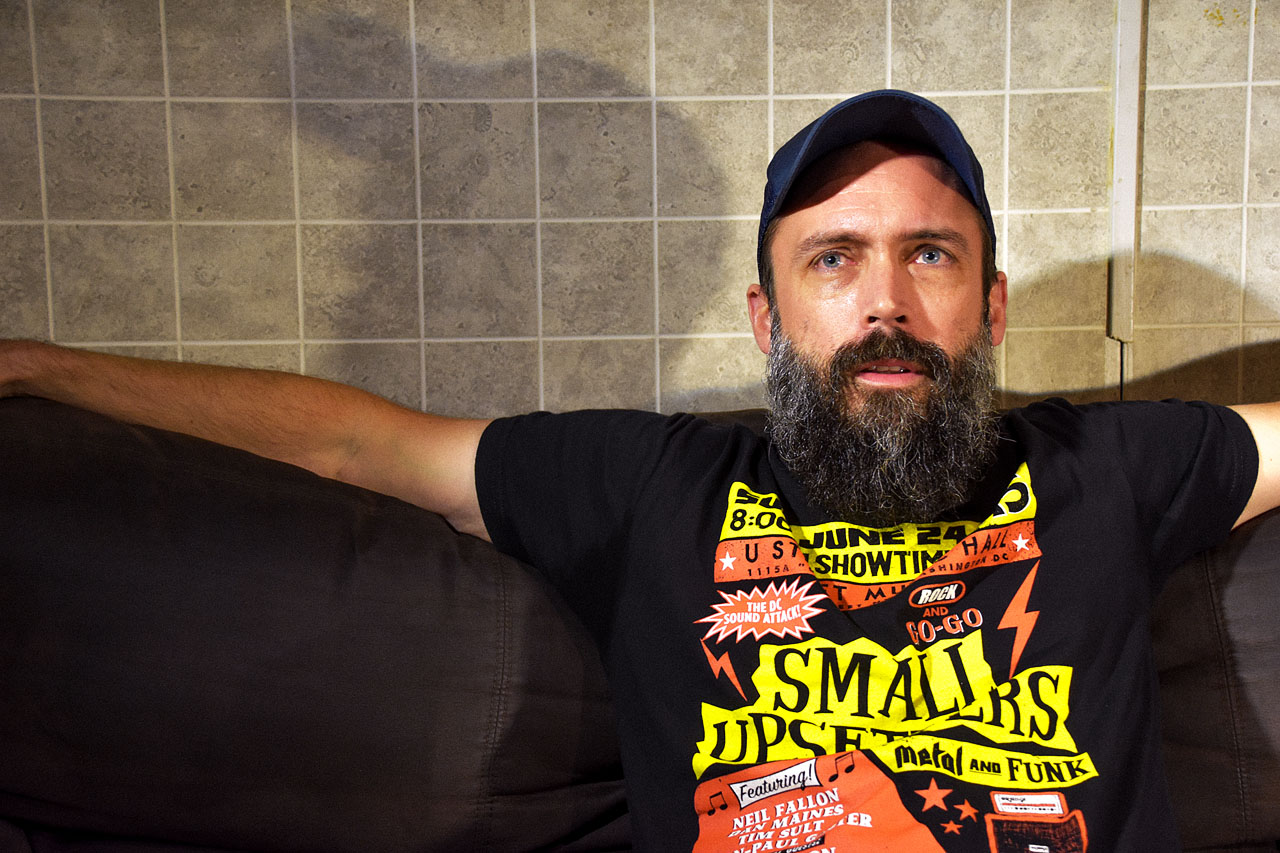
Davis: How important is the human element in spaceflight? Sending astronauts out into space—is that big for you, or are robotic probes just as important?
Fallon: Well I guess if you just consider a robot simply as a tool, an extension of the human body, it's necessary considering the environment, but ultimately the goal is, I think, for us to go there. I don't know how much I'll see in my lifetime, but it's astonishing how much is going on now in all different fields, and it doesn't get any play on mainstream media outlets. Maybe because we're used to it? But you know when you talk about putting landers on asteroids, it's jaw-dropping to me the math and the hours that go into doing something like that. So obviously you have to have these things first. But I think the human impulse is to go and explore, just for curiosity's sake—it's what we do.
Davis: Do you see it more as exploring, or ultimately settling places like Mars and making them more like Earth?
Fallon: I would hope so. But at the same time there's also the part of me that says we've got to get our own house in order first. Maybe we can learn things in that process that will allow us to do that. Who knows, maybe we'll find that the universe beyond our solar system is too hostile, and the distances we're talking about are astronomical—not to be too cheeky. But I would hope so. It seems technology is increasing exponentially and I can't imagine what my grandchildren’s solar system will look like.
Davis: So, to bring music into it—it has always struck me how your music has so many astronomy and space references, and also mythology and religion. How do you use all that in your songwriting process?
Fallon: I think speaking of mythology there's actually a real practical reason for that writing, because if you mention a mythological name or place you instantly infuse a song with an entire backstory, in imagery. If you say Neptune, there's all this baggage that comes along with Neptune. But if you mention Steve, who's Steve?
One of my favorite books is "The Metamorphosis." Even though that was religion and faith, it was also entertainment, to a degree. Not to wax too philosophical, but mythology and even space exploration and music is humanity trying to interpret patterns in chaos and make sense of it all, whether it be Greek myths or modern-day religion and art. If you look at a blank canvas or an uncut stone, it's unknown. In the song, before you hit that string, you don't know what the frequency of the vibration is going to be. It's all unknown. I think the creative impulse is not altogether different than the scientific one, in a lot of ways—to find patterns and learn from them.
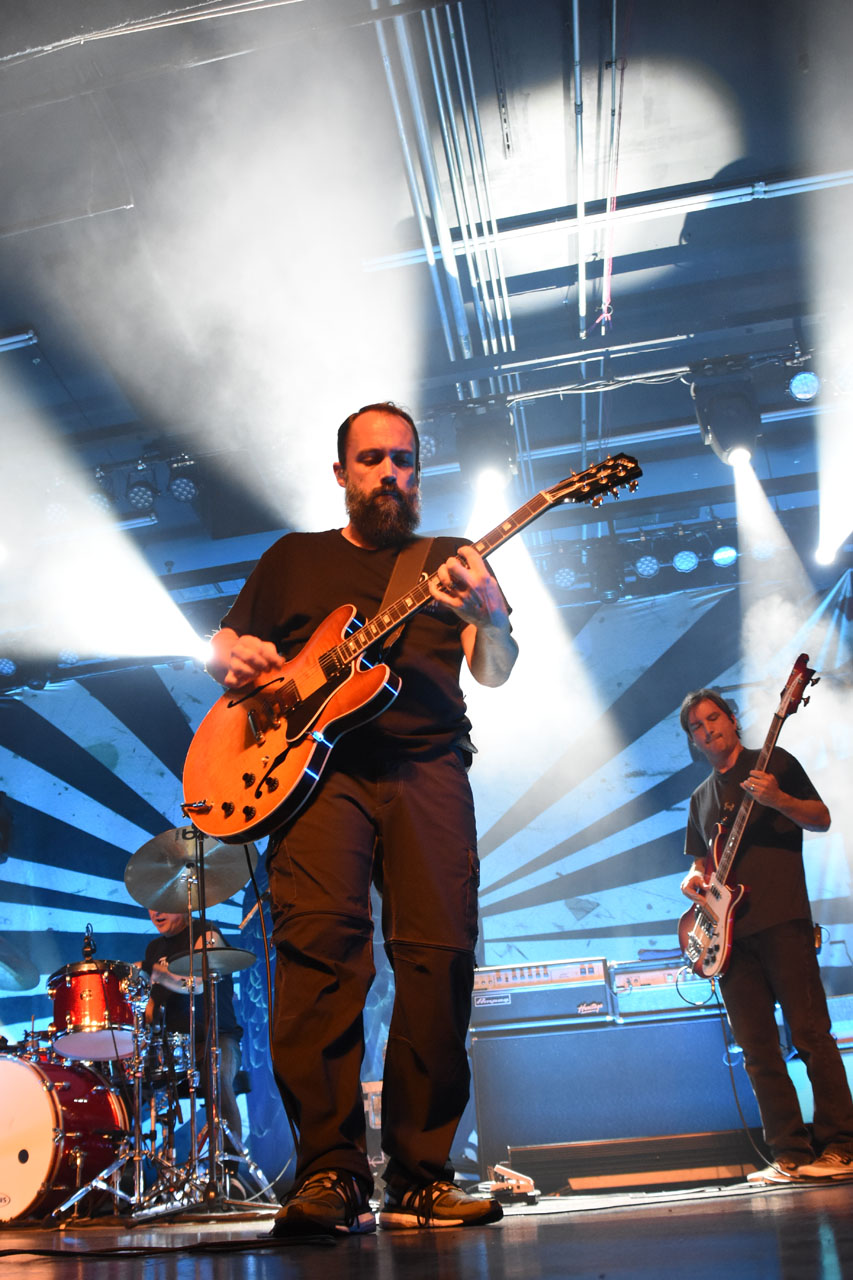
Davis: It seems like a lot of your albums have themes, like what was on your mind at the time. The strongest one that comes to my mind is "Robot Hive/Exodus." It seems like you were thinking about robots and religion, and the music video you did for it is right on the nose with robots in church. Is that generally how it works with you—maybe you're reading a book and that's on your mind, and that just kind of permeates your songs?
Fallon: Sometimes I only know it in hindsight, because when I'm in the middle of it you can't see the forest for the trees. I'm predisposed to science fiction because you're given such license to do so many different things and not be called wrong. That record in particular, when you talk about artificial intelligence, usually the next question that comes up is religion, and what makes something have a soul or not have a soul. Is it self-aware? These are questions for the ages that I don't have the answers for, but you have to talk about it—even if it's in a rock and roll song. Not talking about it is not going to do anyone any good.
Davis: Where did the idea for the "In Walks Barbarella" video come from?
Fallon: I've recently discovered going back to old songs and picking out characters and kind of recycling them. On "Psychic Warfare" there's "X-Ray Visions," and then "Firebirds," which I consider parts one and two, and this is part three of that. But it's 20 years in the future, where this older guy is now a father, kind of looking back on his salad days, picking up hitchhikers in the desert southwest. I've always liked strong female hero figures—the butt kickers. "Barbarella" is a really hard movie to watch. I tried doing it when I was writing the lyrics and I only got about 45 minutes into it. But I grew up reading Heavy Metal magazine, which featured Boris Vallejo and strong women with swords. And when I was 13 years old it was a match made in heaven. It hasn't really left—I guess I live in some state of arrested development.
Davis: I'm curious what you think about the current state of space exploration. What are the big questions on your mind that you're interested in? Are there any missions that you're excited about, or discoveries that you're looking forward to?
Fallon: This thing about The Goblin is really fascinating. A micro-planet—I don't know if that's the right term—way out in the far reaches of our solar system, that gives an indication there's another body out there. To me that's fascinating because that's, cosmically speaking, still our backyard. It just goes to show you can talk about the Big Bang until you're blue in the face but here are these rocks right in front of us that we may not even know about.
I always look to history as an indication—every civilization put their kingdom in the middle of the map, and they were the center of the universe, until they realized they weren't. Our point of reference keeps changing. I think it's hard to let go of the notion that we were created for the entertainment of the universe. It's not the case. I think it's kind of a hereditary arrogance that we have as a species, and very difficult to eat that humble pie.
Davis: How do you feel about private companies that want to go out and extract resources from asteroids, or SpaceX saying they want to lead the way to colonize Mars? Whenever I think of that, I immediately think of Kim Stanley Robinson books where it all goes to hell after Mars just becomes another extension of Earth's problems.
Fallon: Well, I think again, looking to history—look at Europeans' compulsions to risk their lives to come to the New World. I think we like to tell ourselves it was religious, and for some it certainly was, but the driving force was economic, when they realized there was stuff to get. Sometimes companies and governments are two sides of the same coin. I think government has an important role; otherwise it becomes the Wild West, and you can't do that out there. At the same time I think there's also a place for private entrepreneurs because they're much more flexible; governments are bureaucratic and slow or too afraid to make mistakes. So it's an exciting time. And it's all happening very quick.
Davis: What are you thoughts on life beyond Earth, whether it be microbes or intelligent beings? Do you think there is a good chance of that?
Fallon: I do. I really do. We know so, so very little. It's naive to assume that just because this is all we know, it's indicative of the rest of the universe. Just because an ant crossing the floor between us is not aware of this conversation happening doesn't mean that the ant doesn't exist, or vice versa.
Davis: Did you just come up with that? That's a great analogy.
Fallon: I use that to explain it to my son, when he asked about aliens. I said, "Well, I can't say for certain, but the ant is here—and it's unaware that we're having this conversation and it doesn't even really interest us because we don't need it."
Davis: The ant doesn't know all the stuff we do day-in, day-out, technology and everything—
Fallon: Or even our physical presence. Maybe it does, maybe I should give it a little bit more credit.
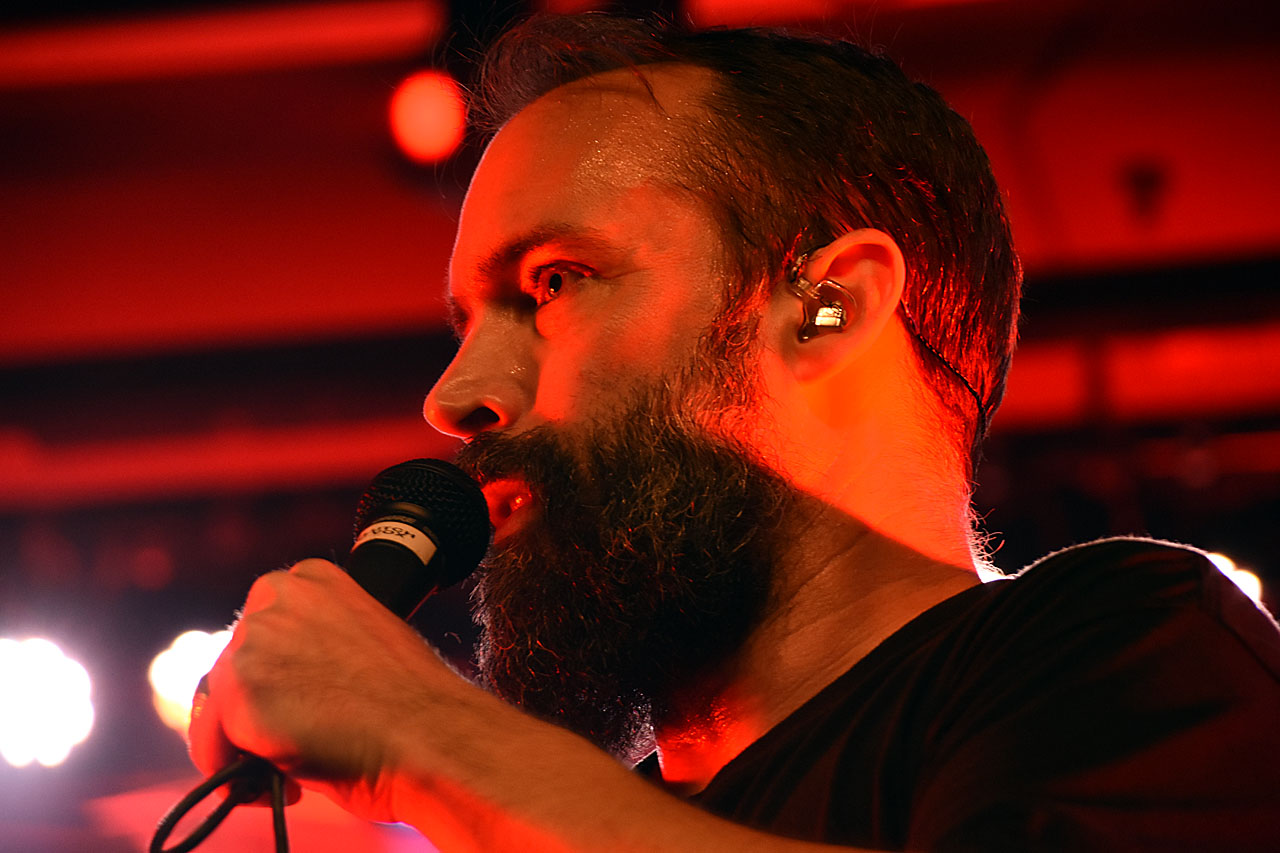
Davis: Would you go into space if you had the chance?
Fallon: Oh, absolutely. I'd have to talk it over with my wife first. I doubt that will happen, but it's fun to dream. One of the things that I always found fascinating is that when astronauts return to Earth, they are changed. You can call it some kind of emotional or spiritual change, from seeing everybody on Earth [gestures]—over there. How could you not come back changed?
Davis: Did you hear about the Japanese billionaire who's going to go on the SpaceX lunar flight and bring artists?
Fallon: Yeah. I'd like to think that there are people who are kind of humanitarian in charge of these things, who understand the bigger picture. If we just make this only for first-class people then we're in some real trouble.
Davis: Does it make you nervous when space billionaires construct cults of personality, or is that just kind of what happens?
Fallon: Charles Lindbergh was a rock star too. It's just exciting for people, and at the end of the day they're just human. You put these people up on a pedestal, and when they make a misstep, they get publicly shamed. Space is hard, so I'm not going to criticize any of these things because heck, sometimes I have problems putting my pants on.
Davis: If Clutch could play a gig anywhere in the universe, where would it be?
Fallon: I've thought about that. Our self-titled record, which I kind of consider the record that sent us off on the trajectory that we are now, has a replica of the famous shot of Earth rising over the horizon of the moon. So if we could do a gig on the moon, with that as the backdrop, I think that would be pretty cool. We'd probably have to play the album front to end. Or on any of the moons of Saturn because that would be the most awesome light show. I look at these high-res images of Saturn and it's just hypnotizing. I could live with that.
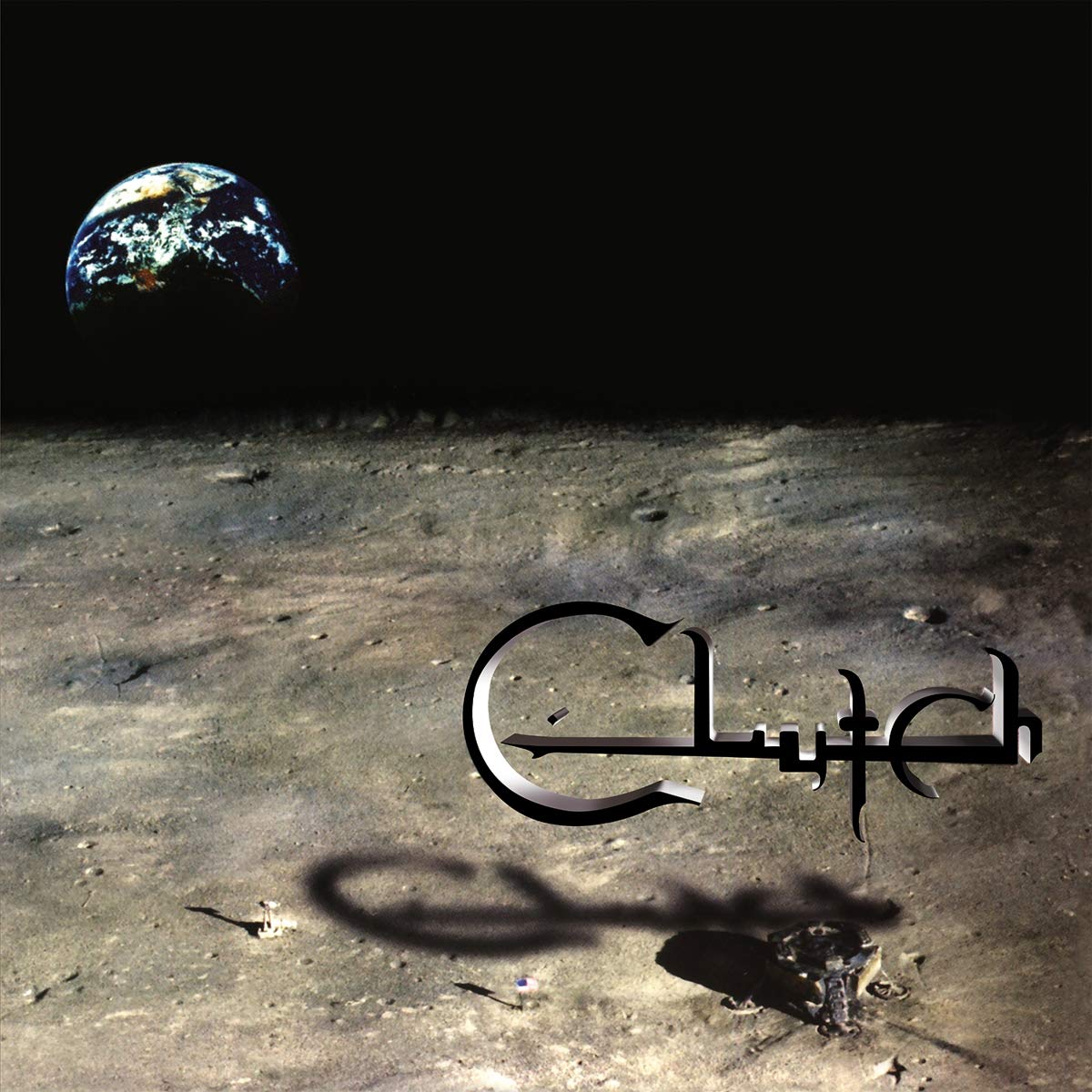
The cover of Clutch's self-titled album, 1995
Davis: Is there anything else interesting you these days, related or even not related to space science?
Fallon: I've started to realize there's a lot of intersectionality between a lot of fields. It's hard for me to understand the nuts and bolts of it. But it's an exciting time. I think I have a newfound respect for science over the past couple of years. It seems like a safe place; when you have facts, there's really not a lot of bickering over it. Sure, scientists can argue about this and that, but it seems like this world has become very unpredictable and very emotional, and I find a lot of solace in just the scientific method, even though I don't really do it myself. I'm thankful that it's here because it's sort of a guide stone in a lot of ways.
Davis: And you said that art has a little bit of that same general process.
Fallon: Discovering the unknown, yes, the human impulse—
Davis: Start with the blank slate, and explore.
Fallon: What's around the corner? Or, how am I going to translate this emotion on a guitar? What's The Goblin all about? I think it all comes back to the same impulse.